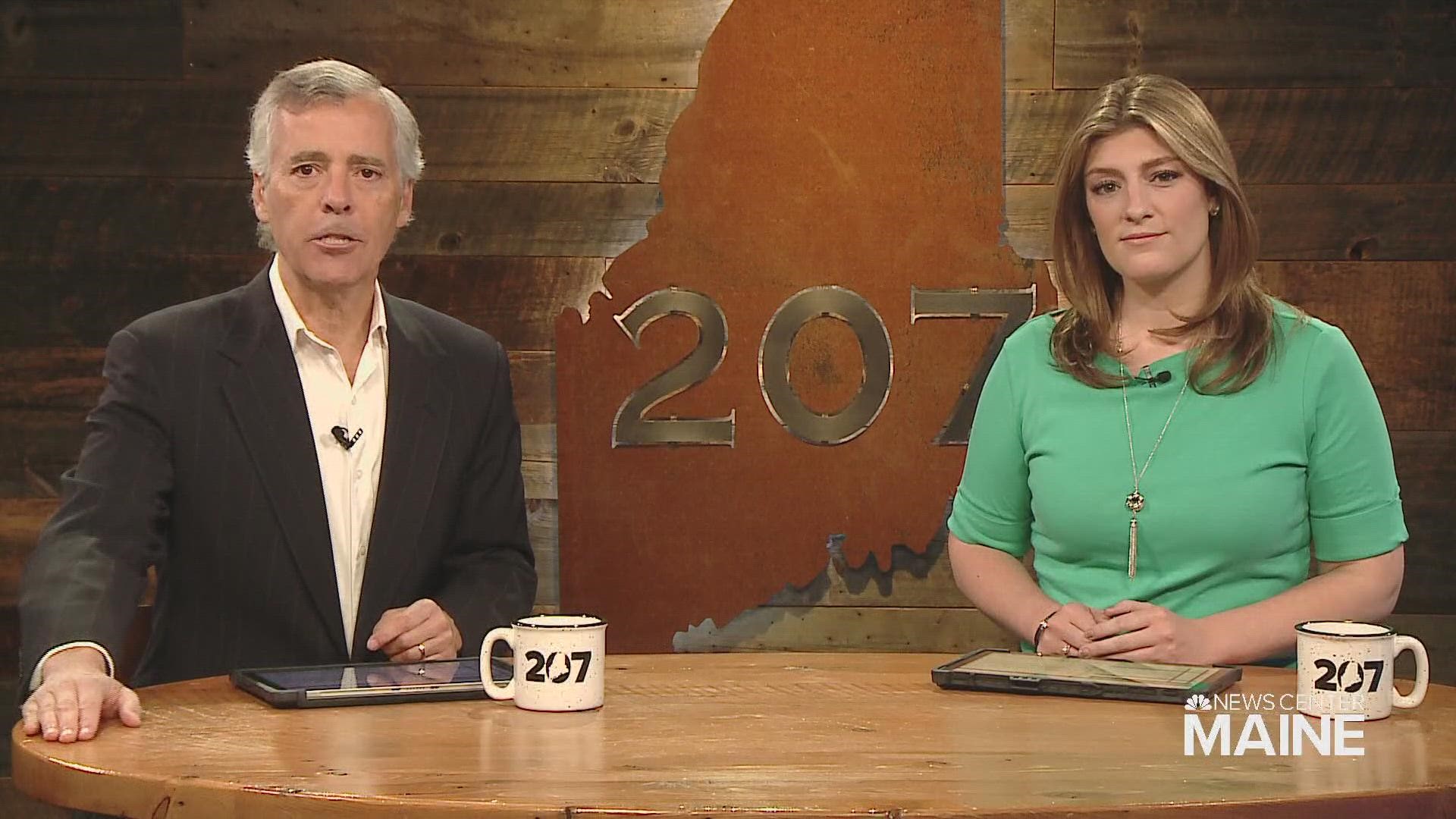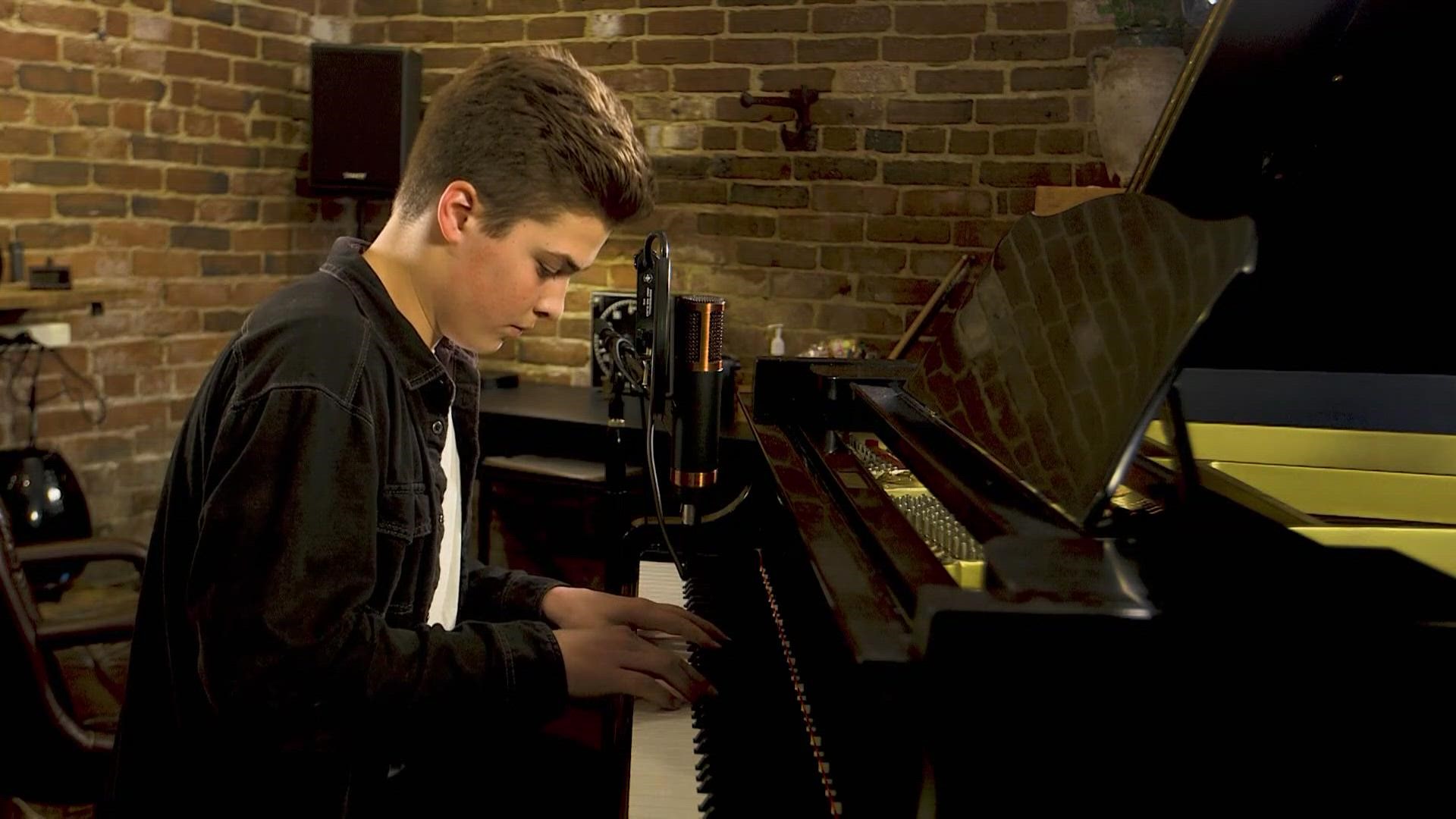MAINE, USA — It’s no secret Maine and the rest of the United States have a crippling drug problem.
The number of people who die from an overdose continues to rise every year and has been on a steady incline for about a decade.
A new series being featured on Maine Public called "Voices of Hope: The Rugged Road to Recovery" is hoping to shed light on this very real problem. The series follows the raw stories of real people from Maine and their journey with substance use disorder and recovery.
The series is a collaboration with the SEED program: Students Empowered to End Dependency, a local nonprofit dedicated to opening the door for conversations about addiction through storytelling.
There are currently students from 15 different schools across the state participating in the SEED program.
David Packhem is the series' executive producer. He said he wanted to do more for the addiction and recovery community after learning his son was struggling with alcoholism.
“It rocked our world,” Packhem said. “We wanted to better understand addiction.”
Packhem said he learned a lot, so much so that he was determined to use the information he had received to help others who might be struggling with substance abuse. He said he quickly turned to the students within the SEED program to help him and his production team get the series off the ground.
Those students include Joshua Phillips of Traip Academy, Charlie Moore of Greely High School, and Kathryn Morin, a recent graduate of Gorham High School.
Phillips was tasked with creating animations for the series. He said the experience taught him more about designing his own creations and opened his eyes to how big of a problem addiction is in our state and across the country.
“I think everybody should learn from this because substance use is a very important topic,” Phillips said. “We want to make sure that people understand how this not only affects them physically, but mentally and socially, how it will affect other people around them.”
Morin has been with the SEED program since its start in 2020. Since then, she has been tasked with overseeing interviews and getting them logged for the series. At first, Morin joined the program as part of a school requirement for credit, but it quickly grew into a passion project.
“It's a really interesting dichotomy. People tend to glorify drug use, but then on the other hand, if you develop substance use disorder, you're suddenly a bad person,” Morin said. “There's a lot of stigma attached to it and both views are just complete one-eighties from each other.”
“What ‘Voices of Hope’ aims to do is reduce the stigma about substance use disorder and we do that by simply telling stories,” Morin added. “Through telling stories, we're able to connect with people that otherwise wouldn't be open to hearing about these issues. So, it helps. It helps humanize people with this illness and once you humanize someone, you can completely change their mind and create a lot of positive change.”
Moore joined the mix more recently after being introduced to the program by a friend. Since then, he’s helped the team by bringing his musical talents to the series. Two of Moore’s original songs, "Heavy" and "Slow Down," are featured.
“I think that's a really beautiful thing when music and something like this show can affect how someone is feeling,” Moore said. “I'm very pleased to be a part of it.”
The students said they would like to see the series shown in all Maine high schools. They said messaging in schools now is outdated, and they believe students would have an easier time connecting to the people in the series and their stories.
“I think if we could somehow introduce the show into our schools, people would be able to connect to it on more of a personal level and see how this is happening in our community,” Moore said. “I think people would gain a lot and they would learn a lot from the realization that this is happening around us and I think we could definitely benefit from having this in our schools.”
To learn more about the series, click here.
Below is a short interview with Dave Packhem about "Voices of Hope" and the SEED Program.


